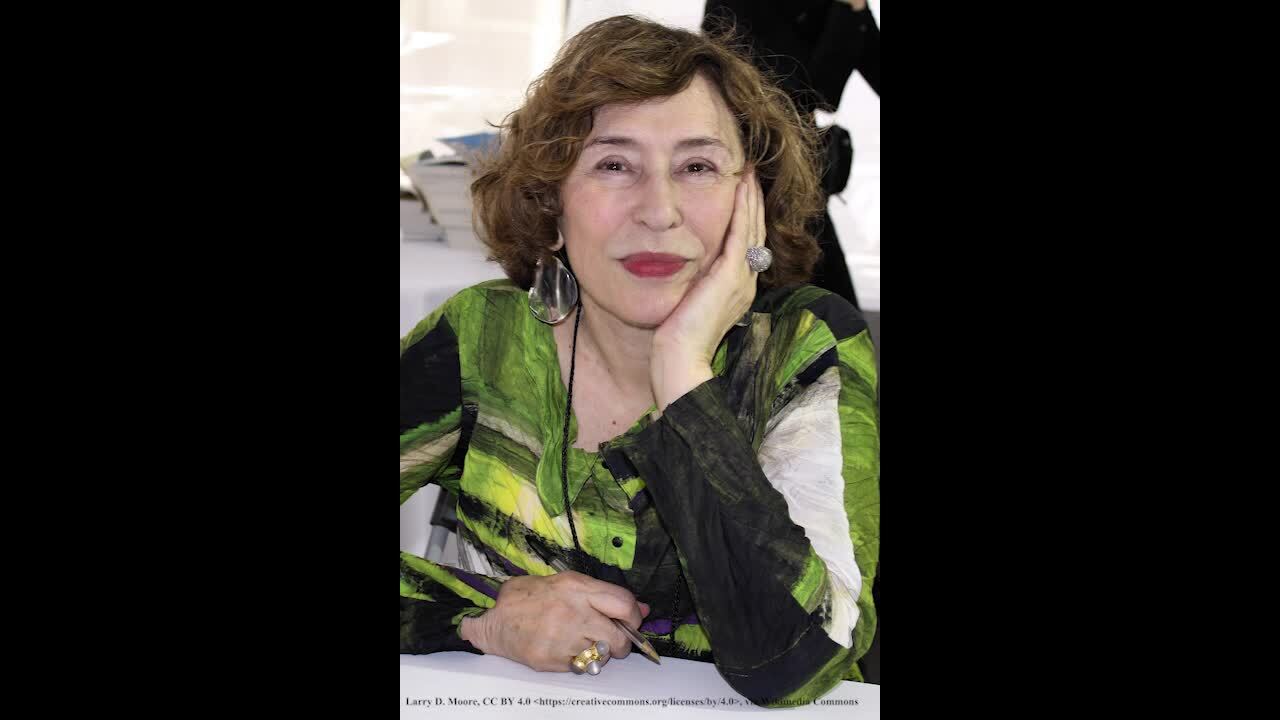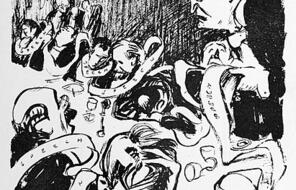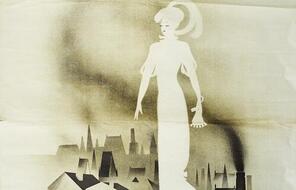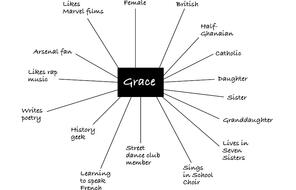[MIDDLE EASTERN MUSIC PLAYING]
I'm Laura Tavares with Facing History and Ourselves. This week in our "What Makes Democracy Work?" series, we spoke with acclaimed author Azar Nafisi. In her 2003 book, Reading Lolita in Tehran, Nafisi described the power of teaching forbidden Western literature to young women in the oppressive Islamic Republic of Iran.
Her more recent memoir, The Republic of Imagination, makes a case for the essential role of fiction in the United States and all democratic societies. In our conversation, Azar Nafisi argued that art and literature are critical because they nurture imagination and freedom of thought, allowing us to dream and envision a different future, something which is the seed of active and creative citizenship.
At the heart of imagination is this idea of transcendence of all the limitations that reality inevitably imposes on us. So in works of imagination and art, what you see is a sort of transcending the boundaries of nationality and religion, ethnicity, gender, race, all the obstacles that prevent us from genuine and open communication and not simply tolerating others but communicating and existing side by side with others, which is different from tolerating. I think there's something both positive and negative to the word tolerating or tolerance even.
So what I feel is that this is really the domain of imagination and ideas are the truly democratic domains because they know no boundaries. They even break the boundaries of time and space so that a man named Dante, who lived hundreds of years ago, can live side by side with a man named Rumi who comes thousands of miles away with in a different language with a woman named Emily Dickinson, with a woman named Toni Morrison.
They all, structurally works of imagination, show us how an ideal democracy works because of the fact that if you go to a bookstore or you go to a museum, you go to a concert hall, nobody asks you about your political affiliation or your class or your race and gender. And the books on the bookshelves or the songs or the paintings and works of art, they come from all over the world. And they all live in this harmony, which is at the same time bearing immense differences. So I think that a democracy, as much as any other form of governance, at its heart needs to nurture and has a duty to not only nurture imagination and ideas but to provide each and every citizen with free quality access to knowledge.
Be that knowledge scientific or imaginative or intellectual, that is the basis, that is the cornerstone of democracy, which our founding fathers and later on every movement from the Civil War to the Civil Rights focused on, that ignorance and complacency are the real enemies of democracy.
How could you vote without knowing where you come from, what your history is, what your principles are? How could you vote or understand foreign policy if you don't know the world? So knowledge is at the heart of democracy. And imaginative knowledge is at the heart of all knowledge.
Nafisi went on to talk about novels in particular as a form of literature that cultivates habits of mind and heart that are critical to democracy.
A novel is the child of democracy. It counts on your curiosity because a great novel has always a question and a puzzle that you need to solve. And in order to solve it, you need to not just follow the plot, but go into-- like the writers also investigate the minds and feelings and relations between each of the characters.
You notice that when we have all sorts of storytelling-- but the development of storytelling into the novel and into short stories came about with the advent of the Industrial Revolution and with this serialization and formulation of democratic aspirations. And I feel that one of the reasons for it is that the whole structure on which a great novel-- I don't mean any novel, a great novel is based on is essentially democratic.
First of all, a good writer, a great writer has to give voice to every single character. That is why I wouldn't simply teach in Iran. That was a very politicized atmosphere. I wouldn't teach them simply bad or mediocre political writers. I would teach them great writers. And a lot of those great writers who were not openly political but they were politically subversive take the most so-called conservative of them all, Jane Austen.
I mean, you open the pages of Jane Austen's novels, and voices leap out at you. And she has to go into the mind of every single character, including the villain of the story, in order to be able to give voice to them. So the novel is not based on judgment. It's based on understanding.
And then take the issue that the heroine and the heroes in those novels are the ones who are blind, who don't see others properly. And they have a flaw. They have to become aware of that flaw and be self-critical and change in order to get the prize. In the case of Elizabeth, of course, it's Mr. Darcy. And Mr. Darcy, the prize is Elizabeth. But they both have to change through interaction with one another. And we had many amazing discussions because it went directly to addressing the situation that my students were facing at that time in Iran.
So whenever I want to teach that concept, I would show my students the democratic nature of the most realistic form of art and literature, which is the novel.
Nafisi's talking about how literature cultivates empathy, humility, and understanding. She celebrated the works of Jane Austen. Is there another author you'd want to add to this conversation about literature and democracy? To learn more about how citizens make democracy work, please visit us at facinghistory.org/democracy-and-us.













